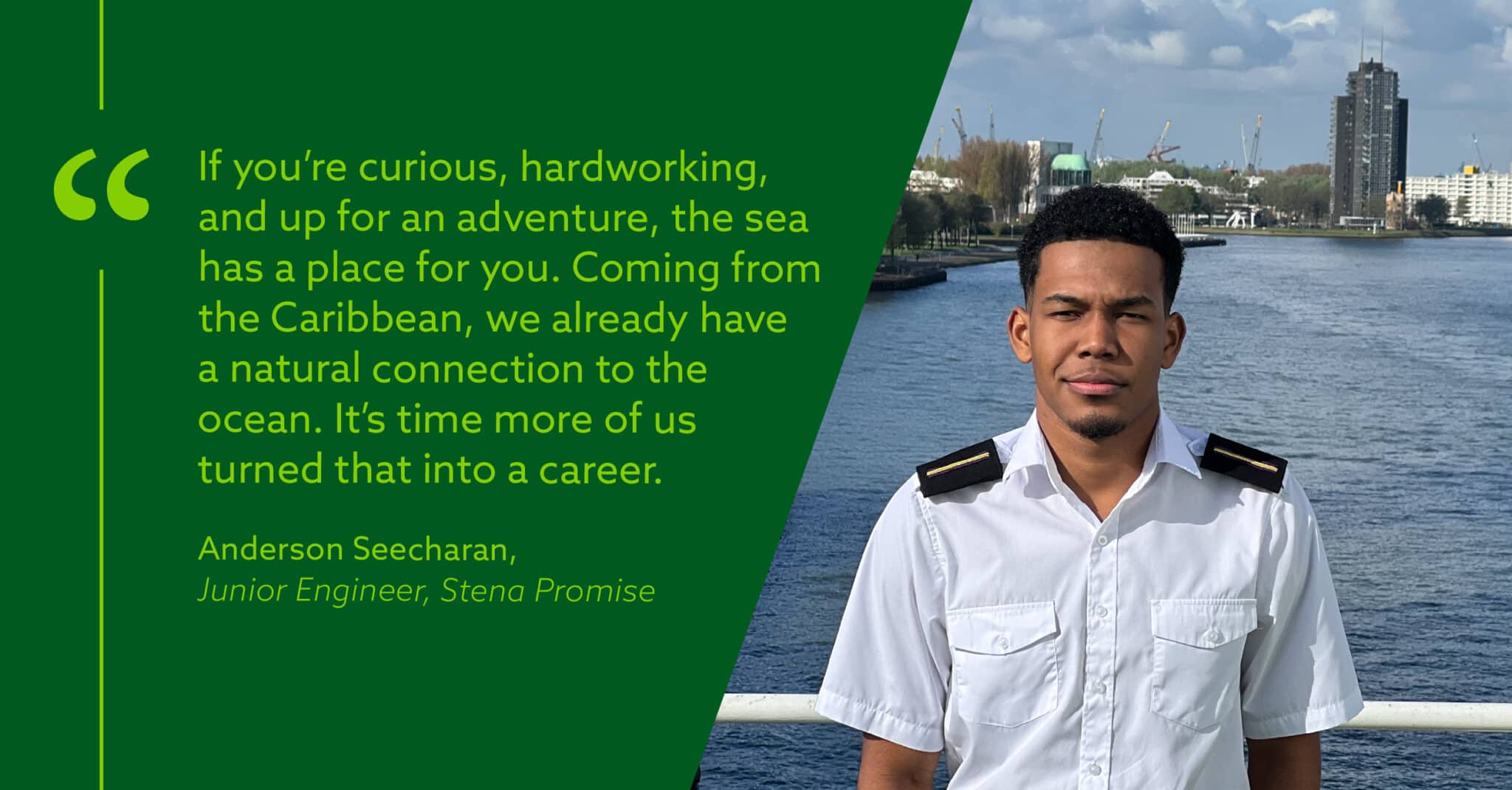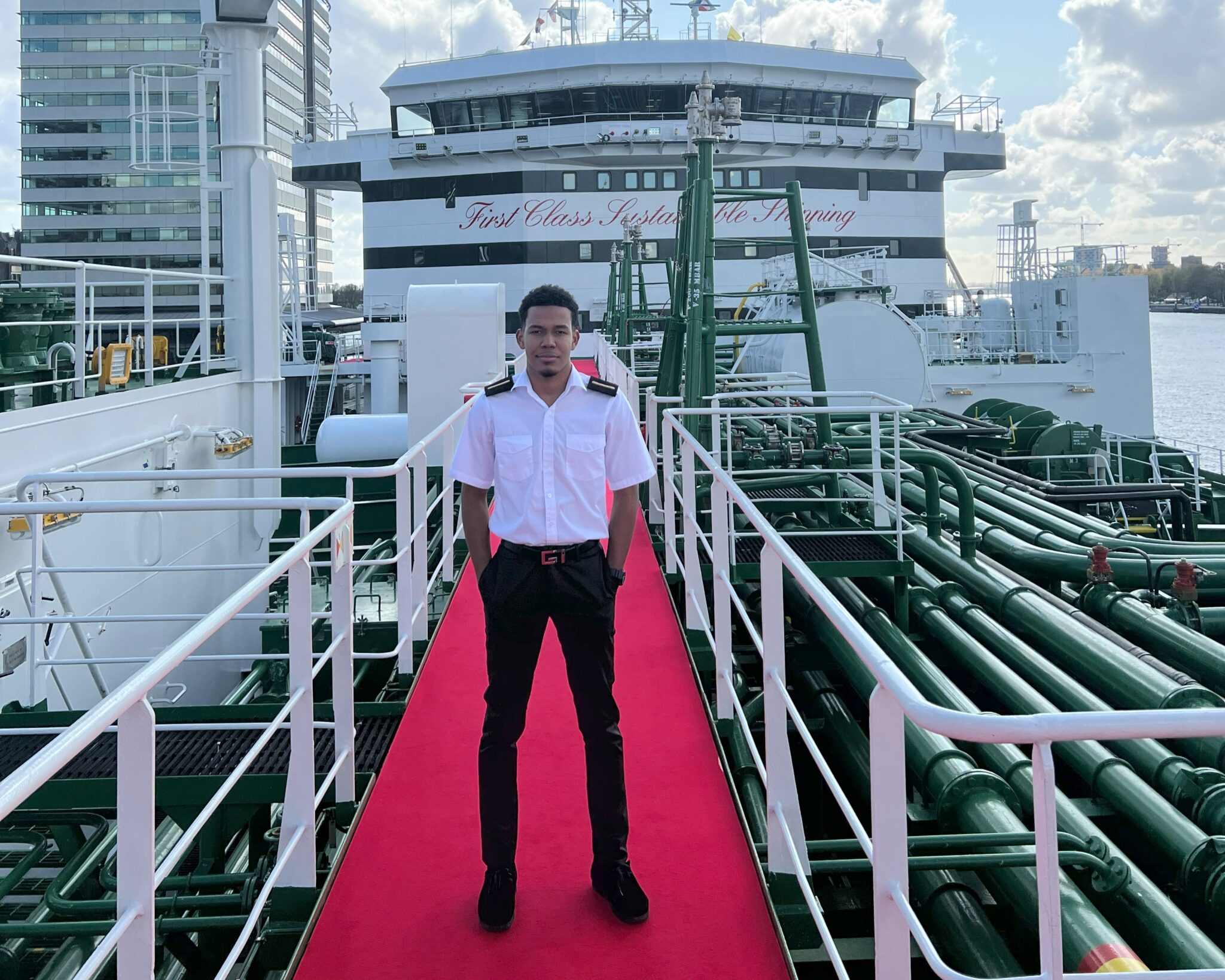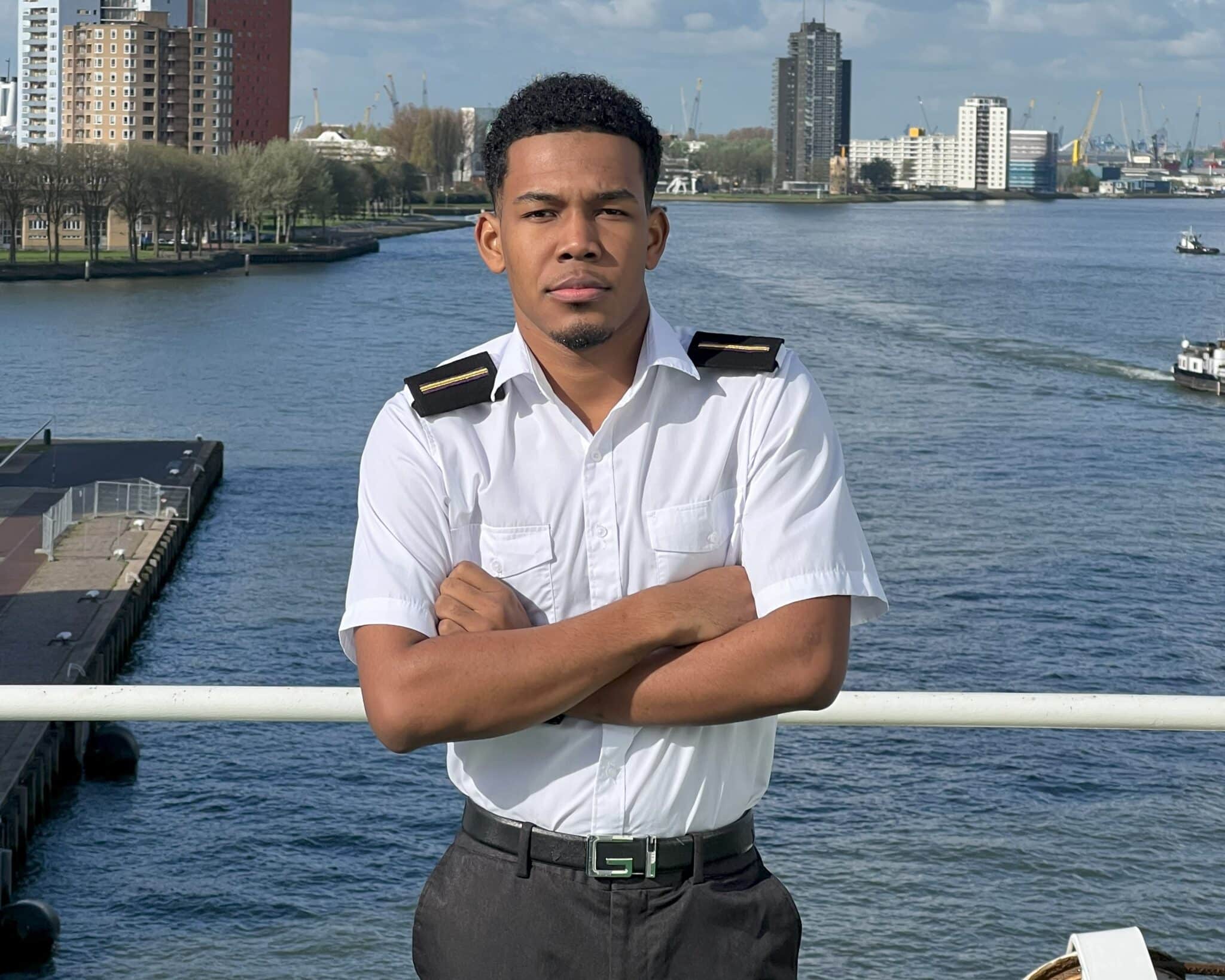From Cadet to the high seas via the University of Trinidad and Tobago
We mark the Day of the Seafarer 2025 with an interview with Anderson Seecharan, a graduate of our cadetship programme, who now serves as a Junior Engineer on Stena Promise, one of the 6 methanol-fuelled fleet we commissioned and built along with Stena Bulk.
Anderson’s journey is a powerful reflection of personal growth, national pride, and the courage to embrace opportunity. Below he shares what inspired his path, how his Caribbean upbringing prepared him for life at sea, and why he believes more young people should consider a future in the maritime industry.
Can you remember the moment at sea when you first thought, “This is exactly where I’m meant to be”?
Absolutely. I remember it clearly. It was late at night—I’d just finished watch at midnight and was about to sleep when I got a call to come up to the bridge. The sea was calm, the sky lit up with stars, and snow was falling in a way I’d never seen back home in Trinidad and Tobago. The only sounds were the hum of the engine and the water breaking against the bow. In that moment of stillness, I felt a deep sense of purpose. I wasn’t just travelling, I was part of something larger. That’s when I knew this life wasn’t just a job; it was a calling.
 How has your background and upbringing in Trinidad and Tobago shaped your experience at sea?
How has your background and upbringing in Trinidad and Tobago shaped your experience at sea?
Growing up in Trinidad and Tobago, I learned the value of resilience, adaptability, and community. Life on the islands teaches you to be resourceful, to make the most of what you have, and to stay grounded, no matter where you go. Those values have helped me immensely on board, especially in a high-pressure, multicultural environment. I also carry a deep pride in representing the Caribbean—our warmth, our work ethic, and of course, our vibes.
What’s been the most eye-opening lesson since stepping from the classroom onto a vessel?
For sure, it has been the difference between theory and practice. The classroom gives you the knowledge, but at sea, it’s your attitude, teamwork, and quick thinking that really count. I also didn’t expect how important emotional intelligence would be—whether it’s resolving conflicts or supporting someone who’s far from home and going through something. Life on board is just as much about people as it is about operations.
What’s one thing you wish more people understood about life at sea—especially beyond what’s shown on social media?
That it’s not always sunsets and ports of call. Life at sea can be isolating, physically demanding, and mentally tough. We miss birthdays, holidays, and key family moments. Social media shows the adventure, but not the fatigue, the long contracts, or the sacrifices behind the scenes.
What would you say to young people—especially those in the Caribbean—who’ve never considered a career in maritime?
Don’t rule it out just because you don’t see it around you. The maritime industry offers real opportunities for travel, growth, and financial independence. It’s not always glamorous, but it builds character in ways few other careers can. If you’re curious, hardworking, and up for an adventure, the sea has a place for you. Coming from the Caribbean, we already have a natural connection to the ocean. It’s time more of us turned that into a career.
The Cadetship Programme was launched in 2022, thanks to a partnership between Proman, Northern Marine and the Centre for Maritime and Ocean Studies (CMOS) at the University of Trinidad and Tobago (UTT). It was created to bridge the gap between academic learning and real-world experience, providing Trinidad and Tobago’s aspiring maritime professionals with the skills and opportunities to create meaningful maritime careers.



